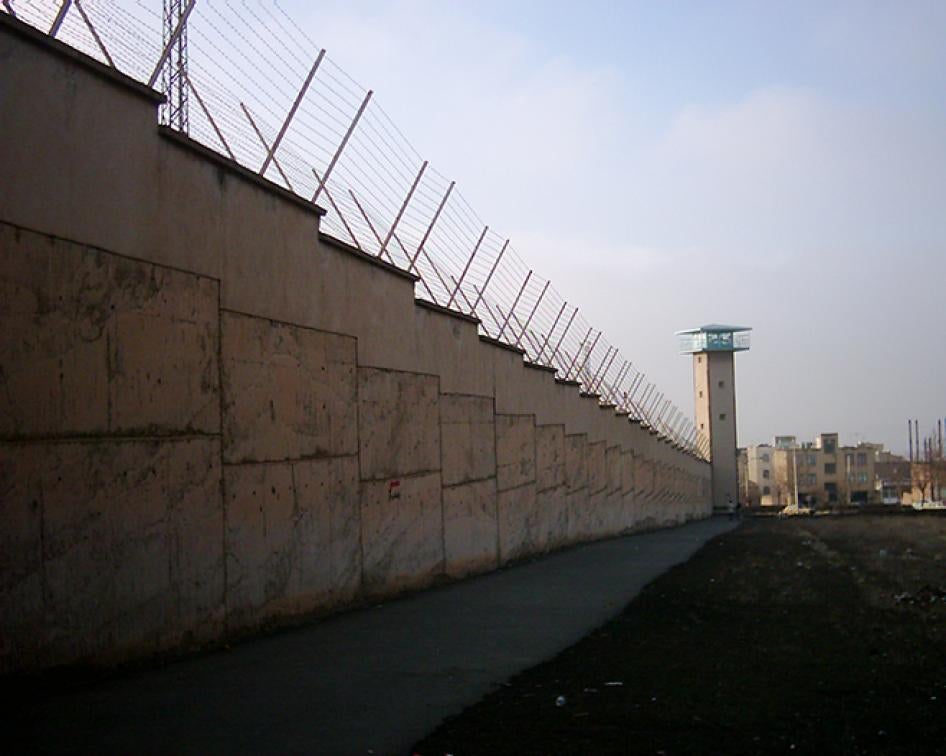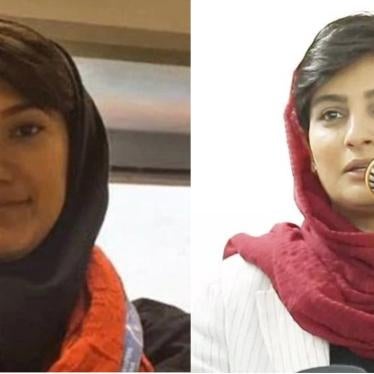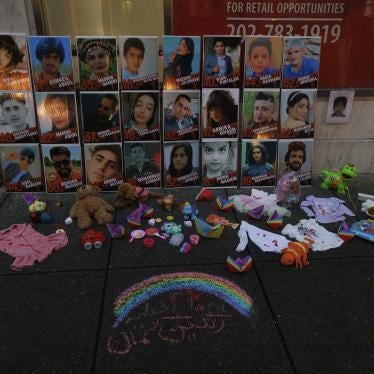(Beirut) – The Iranian authorities’ dramatic escalation of executions in recent weeks is a serious violation of the right to life and should bring international condemnation, Human Rights Watch said today.
Since late April, the Iranian authorities have executed at least 60 people, including an Iranian-Swedish national on alleged terror-related charges. Many of them were executed after unfair trials or for charges, such as drug offenses and two executions for “blasphemy,” that under international law should never result in the death penalty.
“Iranian authorities are apparently using executions, an inhumane punishment, following unfair trials as a show of force against its own people, who are demanding fundamental change,” said Tara Sepehri Far, senior Iran researcher at Human Rights Watch. “The international community should unequivocally condemn this terrifying trend and press Iranian officials to halt these executions.”
On May 8, Mizan news, the judiciary’s news agency, announced that the authorities had executed Yousef Mehrdad and Seyed Sadrollah Fazeli Zare in Arak Prison following charges of “insulting the prophet.” Mizan reported that, the charges also included “blasphemy,” “insulting the prophet’s mother,” and “belittling the Quran.” These charges were all based on peaceful speech the defendants were alleged to have broadcast on Telegram channels. The announcement said that the authorities also found evidence of “burning the Quran” on Mehrdad’s phone.
While Iran’s judiciary claims the defendants had access to a lawyer of their choice, BBC Persian has reported that their families and their “public defenders” did not know the people had been executed.
According to the Human Rights Activists News Agency (HRANA), in 2022, Iranian authorities executed 565 people, including 5 who were under 18 at the time they allegedly committed the crime. Between January 1 and May 5, 2023, Iran executed at least 192 people, including 8 women, the majority of them for drug-related offenses and murder.
On May 6, the Tehran authorities executed an Iranian-Swedish national, Habibollah Asivad (Chaab), on the charge of “corruption on earth,” which stemmed from the alleged role of the opposition group he represented in a deadly attack on an Iranian military parade in Ahvaz in 2018. Iranian agents arrested Chaab in 2018 in Turkey, the Washington Post reported. It said that, based on an interview with a Turkish official, Chaab was lured to Turkey by a woman, drugged and kidnapped when he went to meet her, and then smuggled across the border into Iran.
His trial proceedings were unfair, and Chaab did not have access to a lawyer of his choice, Iran Human Rights reported. In an interview with Insaf News, a lawyer who said he represented Chaab was reported saying that “we are not looking for the acquittal of the accused.”
Jamshid Sharmahd, a German-Iranian national who was also reportedly arrested outside Iran, is at serious risk of execution as Iran’s Supreme Court upheld his death sentence on April 26.
Since April 25, the authorities have executed more than 60 people in prisons across the country, including Rajai Shahr and Ghezel Hesar (Karaj); Urmia, Ardabil, and Dastgerd (Isfahan); Vakilabad (Mashhad); Neishabur, Adel Abad (Shiraz); Torbat-e-Jam; Rasht; Yazd; Birjand; Qazvin; Minab; Bandar Abbas; Khorramabad; Zahedan; Arak; and Iranshahr prisons.
The surge in executions appears to be driven by a dramatic increase in drug-related executions. The number of drug-related executions had temporarily decreased following an amendment to Iran’s drug laws in 2017 that raised the bar for the mandatory imposition of the death penalty.
According to a report published by Iran Human Rights, a Norway-based human rights group, ethnic minorities in Iran have been especially targeted by recent executions. The group said that 130 people have been executed in four provinces of West Azarbaijan, East Azarbaijan, Sistan and Baluchestan, and Kurdistan in 2022 – more than double the 62 in 2021 and 60 in 2020.
Of the executions confirmed by Iran Human Rights in those areas, only 10 (8 percent) were announced by the authorities, compared with 12 percent for the country as a whole. Approximately 92 percent of executions in four provinces – and 88 percent across Iran – in 2022 were carried out without any report being published in the media inside Iran.
According to Haal Vash Human Rights Group, which focuses on the situation of human rights in the Baluchistan area, between April 29 and May 4 alone, at least 20 people – 18 men and 2 women – were executed on drug and trafficking-related charges.
Under article 6(2) of the International Covenant on Civil and Political Rights, which Iran has ratified, in countries that still retain capital punishment, the death penalty may be applied only for the “most serious crimes.” The United Nations Human Rights Committee, which interprets the covenant, has said that drug offenses are not among the “most serious crimes,” and that the use of the death penalty for such crimes violates international law. Human Rights Watch opposes capital punishment in all circumstances because it is inherently irreversible and inhumane.









